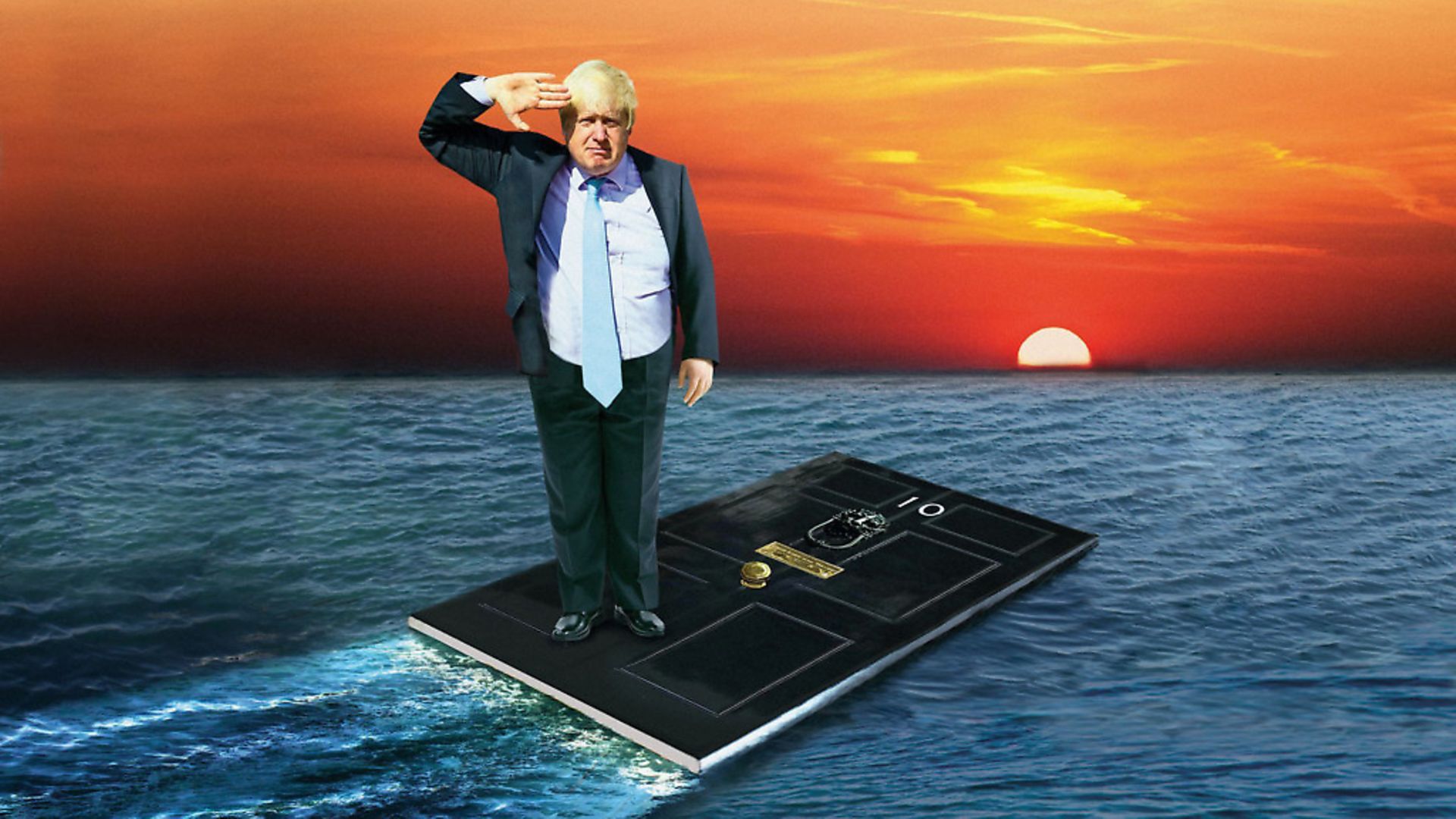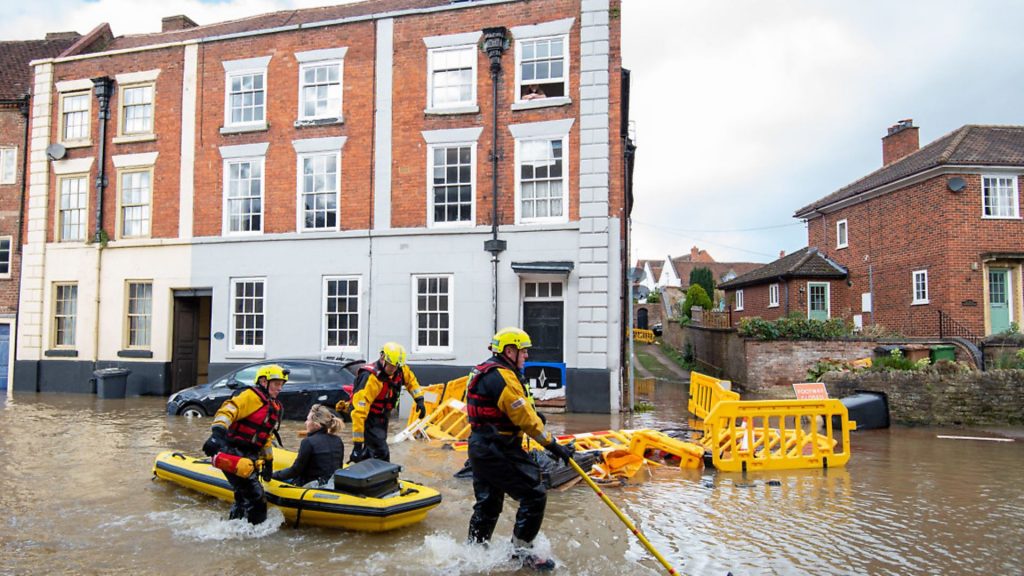
ALASTAIR CAMPBELL explains how the government’s strange Brexit climate has allowed Boris Johnson to resist the floodwater outrage.

Being prime minister is about what you choose not to do, as well as what you do do. Every hour, every minute, every second, you and those who work for you are making such choices. And mostly, the choice is ‘no’.
He (for alas the current occupant is the he that is Boris Johnson) will be unaware of most of the demands on his time being made by the thousands of people and organisations who write and email in every day, because if he had to decide on each one himself, he would literally have no time for anything else.
So he has to have people in the organisation, from letter-openers who know instinctively that ‘that is a no,’ and ‘that is a maybe’. The ‘maybes’ are then sent to the next level, of middle to senior advisers, who write ‘no’ on most of those before a tiny number go forward to the PM for a final yes or no.
Meanwhile the thousands get a very polite, short letter from a civil servant, written by a secretary, saying that “the prime minister has asked me to thank you for your letter, but unfortunately due to other commitments, he will not be able to etc etc…” Then a few bespoke warm words if they’re lucky, and off it goes by return of post.
This is not a criticism, just a bureaucratic fact about the genuine pressures on the diary of a prime minister. There are only 24 hours in the day. Some have to go on sleep. Some on eating, though that can often be combined with work. The rest have to be mapped carefully, according to strategic priorities, key relationships and management of events. The diary secretary, the person holding the pen over the schedule, with the right and responsibility to move things around without constantly asking the prime minister, is an important and powerful position.
So… I am trying to envisage any set of circumstances which led to there being no discussion, directly involving Johnson, to decide whether he might make a public statement about the floods, or visit one of the areas badly affected. And I can’t. I just can’t. Which means that Johnson, probably at several points, actively took a decision to say “no, I am not doing that”.
Once his non-activity became an issue, Downing Street claimed that those actually managing the floods on the ground had been clear they did not want visits from high-profile public figures as this took resources and personnel away from the task in hand. Johnson showed no such reluctance when floods struck during the election campaign. COBRA meeting alert. ‘PM takes charge.’ Photo-op in flood area with what looked like his first ever encounter with a mop and a bucket.
On the very day this ‘we were told to stay away’ excuse was being trotted out by Downing Street, Prince Charles made a well-received visit to a badly-hit area of Wales. One thing the Royals are very good at is visits. We can be reasonably sure that if a demand had been made not to send high-profile VIPs, the visit would not have taken place. So on two strong grounds, the Team Johnson ‘line to take’ (lie for short) falls apart.
It all begs the question: what else was he doing with his time that was more important than showing empathy, which is part of the job of leadership, and, more importantly, ensuring that all relevant parts of government were operating properly, that those who needed help were getting it, that the right people were in charge, and resources going to the right places?
All that, you might say, can be done from behind a desk, at Chequers, or Chevening, or whichever fancy country house he happens to want to hang out in. Indeed, it can. But given Johnson is not exactly backward in coming forward with the Action Man act when it suits him, and given he knows that government machinery as well as public opinion responds to signals from the top, I think we can assume he did little on the floods beyond saying he didn’t want to do much.
And that begs the question: why not? Is it laziness? Is it lack of concern? A mix? I don’t know. With much of the media still supine and sycophantic, and the opposition largely absent as Labour continues with its seemingly never-ending leadership debate to decide just how good Jeremy Corbyn was, is it indifference to political damage? After all, some of the areas affected are those which switched from Labour to Tory, so why would he not want at least to show that he had some concern for them? It strikes me that if you are ‘people’, and your house is flooded, then the floods are very much those ‘people’s priorities’ (soundbite of choice December 13, 2019) as the water gushes in.
Johnson, like most narcissists, likes to be the centre of attention, and likes to be liked. Why risk being disliked, by those who were arguing that his lack of presence, or even comment, showed a total lack of concern?
I was genuinely baffled by this, but my bafflement was eased by a little exchange, entirely unrelated to the floods, on Twitter. It was a comment by the BBC’s Emily Maitlis, on a tweet by Stewart Wood, former adviser to Ed Miliband. Wood had said: “The UK is the USA with a two-year time lag.” Maitlis commented: “I think we’re getting quicker. Between 3-6 months now. Just look at moves on the judges.” To which, though I can see why she might have felt restricted, she could well have added: “And the BBC.”
Certainly, if you had said to me a couple of years ago that we would have a government deliberately setting out to undermine all but the SSM (supine and sycophantic media), and going for the independence of the judiciary, I would have waved you away. But here we are, all very Trumpian, all very fast.
So what does that have to do with Johnson’s two fingers to the flood victims? This – they are being deliberately raised. Two fingers up to what people might expect him to do, or how they expect him to behave. It is Trumpian arrogance of power pure and simple. Chequers and Chevening at every opportunity are his version of Trump’s “I will play golf whenever the hell I want to”. Mysterious £15,000 freebie holidays are Trump’s Mar-a-Lago, arrangements that predecessors would not have got away with, nor tried to.
The indifference to the floods is his saying that nothing is important unless and until he says it is. And his indifference to the possibility of people being angry at his indifference is born of the confidence he can create something else for them to be angry about in the future – Europe, immigrants, civil servants, judges, the BBC, Labour, the Scots – when the floods will be largely forgotten.
Most rational analysis of most political history tells you that Trump is politically dead, because of all the bad things he has said and done. But he is not. Far from it. Indeed, because of his ability to divide and rule, to keep his base loyal and ever more fired up, he may win again. In more ways than one, Johnson is playing the Trump playbook.
They share a fondness for casual and not-so-casual racism, most recently Trump saying Gone with the Wind would have been a better Oscar-winner than South Korea’s Parasite. More seriously, immigration policies which risk ruining the fruit industry or further ruining the social care system are deemed worth it provided they satisfy the prejudiced attitudes expressed by a member of the Question Time audience last week and subsequently tweeted out by the show.

Not that the programme pandering to his agenda will spare them, because Number 10’s assault on the BBC is part driven by Johnson’s desire to have broadcast outlets as fawning for him as Fox News is for Trump. The hit-list of senior civil servants across Whitehall reflects Johnson’s jealousy of a presidential system in which advisers and experts can be fired at the leader’s whim. The resurrection of Dominic Cummings’ use of ‘the blob’ as catch-all abuse for impartial public service is part of the Trumpian message that only the leader and his immediate circle have views that count.
And Johnson, for all his pretence to be a writer and a scholar, is also going down the dumbed down route, with officials being told there is no point writing long papers for him, because if they are anything over a couple of pages, he won’t read them. All, again, very Trumpian, if not yet amounting to a Trumpian ban on paper on his desk. But all very bad government, which deserves to be swept away with the floodwater. In these very strange times, however, it is no longer guaranteed that it will. Which is why Johnson could not give a Four X about the floods, or their victims.









